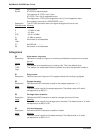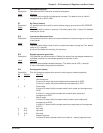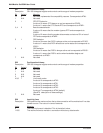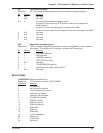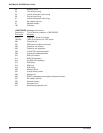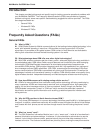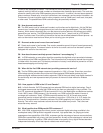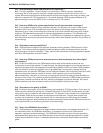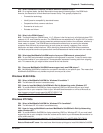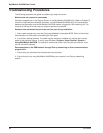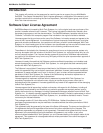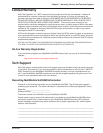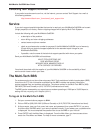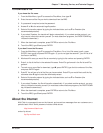
MultiMobile SoftGSM User Guide
MTSGSM
50
Q12. What advantages does GSM provide to PCS operators ?
A12. For many operators, “time to market” is a critical issue. GSM is a proven, established
technology with a track record of success in enabling operators to launch their service first in a
market. Manufacturing efficiencies and economies of scale also make this technology a robust, cost
effective investment for PCS operators that . One North American GSM operator estimates a 30
percent savings of more than $200 million in building out its PCS network.
Q13. How does GSM’s total system specification benefit operators and consumers ?
A13. Every aspect of the technology has been defined in the standard. As a result, GSM service
providers are the only PCS licensees which have the ability to interchange mobile infrastructure
equipment from a variety of manufacturers. Because it’s a proven network technology with multiple
suppliers, GSM generates economies of scale and development momentum. This translates into
speed to market — in a cost effective manner. The GSM family of standards is supported by regional
and international service providers and manufacturers which work diligently to ensure the evolution of
the technology.
Q14. What about roaming capabilities ?
A14. GSM architecture supports full-featured, seamless roaming between GSM systems in North
America. This inherent roaming capability allows operators to easily exchange common services,
billing records and location information. Today, there are 62 international roaming agreements signed
with other GSM operators around the world.
Q15. How does GSM provide more advanced services and functionality than other digital
technologies ?
A15. One of the objectives for the GSM-based platform was to offer advanced services and
functionality from a single network. To meet this goal, the designers made it part of the standard and
based the architecture on the Integrated Services Digital Network (ISDN) call model. GSM operators
have the flexibility of offering integrated voice, high speed data, fax and short message services
capabilities from one network. GSM also has the Intelligent Network (IN) functionality required to offer
advanced subscriber features needed for private virtual networks such as call forwarding,
abbreviated dialing, restriction on incoming or outgoing calls and call handling procedures based on
location or time of day. The versatility and advanced feature functionality of GSM allows operators to
be extremely creative and diverse with their marketing strategies and service offerings. As a result,
GSM customers have more minutes of use than do the traditional cellular phone user.
Q16. What about voice quality of GSM ?
A16. Excellent voice quality is one of the primary requirements for PCS subscribers. That is why the
GSM community worked to develop the 13 kbps Enhanced Full Rate (EFR) vocoder which provides
voice quality that is competitive with wireline service. The selection of the vocoder was a cooperative
effort between GSM service providers and equipment manufacturers. The goal was to select one
vocoder and to establish an open standard so that any manufacturer could produce the handsets.
This teamwork approach demonstrates the common commitment that the entire GSM community has
to the standardization and continuing evolution of this technology.
Q17. What is the GSM MoU Association ?
A17. GSM operators are also part of a bigger wireless network family of worldwide companies. On
an international level, the GSM MoU Association, is composed of the world¹s GSM network
operators, regulators and administrators. The GSM MoU Association exists to drive the promotion,
development and deployment of the GSM standard as the world¹s leading digital platform for global
mobile communications. As such, it addresses issues which collectively face members around the
globe.



